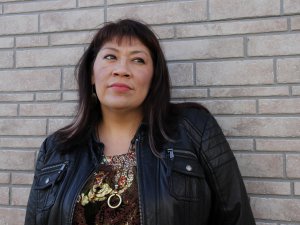Presented By: Institute for Research on Women and Gender
Beyond Life/Not Life: A Feminist-Indigenous Reading of Cryopreservation Practices and Ethics, Interspecies Thinking, and the New Materialisms
Dr. Kim TallBear, University of Texas-Austin

Cryopreservation enables storage and preservation of bio-specimens—including those taken from indigenous peoples’ bodies, often within earlier ethical and racial regimes—into times and spaces beyond those inhabited by the (once) living bodies. New bioethical responses are afoot. But when they emerge from non-indigenous institutions and philosophical terrain they cannot fully address indigenous peoples’ interpretations and ethical needs. Indigenous responses to cryopreservation technologies and practices can be more fully understood not simply by recourse to “bioethics,” but also by weaving together the approaches of indigenous thinkers historically with newer thinking in indigenous studies, feminist science studies, critical animal studies, and the new materialisms.
This talk weaves into conversation diverse intellectual threads in order to help us understand how the lines between life and not life, materiality and the sacred are not so easily drawn for some indigenous peoples. This implicates how we approach from an indigenous standpoint the ethics of the preservation and new use of old biological samples. More fundamentally, this talk interrogates the underlying concept of “preservation” that emerges from non-indigenous institutions in the form of technological and policy practices. Such practices compartmentalize indigenous history, bodies, and landscapes into a historical before and after that undercuts the very idea of indigenous peoples and landscapes as fully alive today.
Presented by the Institute for Research on Women and Gender's Feminist Science Studies Program and the Department of Anthropology.
This talk weaves into conversation diverse intellectual threads in order to help us understand how the lines between life and not life, materiality and the sacred are not so easily drawn for some indigenous peoples. This implicates how we approach from an indigenous standpoint the ethics of the preservation and new use of old biological samples. More fundamentally, this talk interrogates the underlying concept of “preservation” that emerges from non-indigenous institutions in the form of technological and policy practices. Such practices compartmentalize indigenous history, bodies, and landscapes into a historical before and after that undercuts the very idea of indigenous peoples and landscapes as fully alive today.
Presented by the Institute for Research on Women and Gender's Feminist Science Studies Program and the Department of Anthropology.